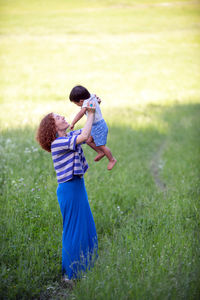
My calling to work with vulnerable children began with a personal loss—infertility. My husband and I were unable to have biological children. After much reflection and prayer, we decided to pursue adoption. From the outset, I understood that children placed for adoption always carry special needs—at the very least, the trauma of abandonment. I cried out to God, telling Him I was too fragile, too weak to parent a child with such deep wounds.
In Finland, the adoption process takes several years. Along the way, my heart began to change. Compassion grew in me—for all children who had a rough start in life. I started to see loving them not as a burden, but as a beautiful and sacred calling. Scripture began to come alive in new ways. God's care for the orphan and the widow resonated with me deeply. James' words about caring for orphans as pure and undefiled religion began to guide me, as did Jesus’ words: “Whoever takes one of these children to himself in my name will take me” (Matthew 18:5).
Eventually, through international adoption, we welcomed a little boy of Asian descent into our family. From the very beginning, I took a vocational approach to his upbringing, immersing myself in trauma-informed care. I studied therapeutic approaches like DDP and TBRI, which are designed to help children heal from deep emotional wounds.
Once the intense early parenting months passed, I began to long for another child. However, due to my husband’s age, we were no longer eligible for another adoption under Finnish law. That’s when the idea of fostering began to stir in me. At first, my husband didn’t take it seriously. He thought we were too sensitive, too impractical, to take on something so demanding. I doubted it myself—but a fire had been lit in my soul. I brought it up often, but the answer was always no.
I grieved, and I surrendered the desire to God—again and again. Yet, even in my surrender, I kept receiving dreams and impressions that felt unmistakably divine. One particular passage from Isaiah kept returning to me:
“Is not this the kind of fasting I have chosen: to loose the chains of injustice... to share your food with the hungry and to provide the poor wanderer with shelter...? If you spend yourselves in behalf of the hungry and satisfy the needs of the oppressed, then your light will rise in the darkness...” (Isaiah 58:6–11)
I told God, "Now I have no doubt that this is Your will. If You lead us, I will follow."
Still, nothing changed—until one summer evening, out of nowhere, my husband began a conversation. He had been going through a Bible reading plan focused on the values of the Kingdom of God. He looked at me and said, "I can't think of anything more valuable than caring for a vulnerable child."
I was in awe. God had done something I could not. We enrolled in foster parenting training. As we walked the path together, our sense of calling deepened—even as we faced the real challenges ahead.
Around that same time, I became involved in launching a Christian network for vulnerable children in Finland. The network, supported by funding from the Finnish Social and Health Organisations' Aid Centre through a Finnish Christian NGO, ViaDia, aims to spread trauma-informed parenting across the country. Welcoming a child with a trauma history is a special calling. It's not just parenting—it’s healing. And for that, preparation is everything.
We’re now preparing to launch Orphan Sunday (also known as Pure Religion Sunday) in churches and Christian organisations. Our vision is to awaken the Finnish Christian community to the needs of vulnerable children—and to equip families with tools to care for them in a trauma-informed, faith-rooted way.
I believe this calling is more urgent now than ever before. Around the world, God seems to be stirring hearts with the same vision. My desire is to be part of that movement—to spread the message, and to help families partner with God in healing the brokenhearted. As my husband once said: “I know of no mission more worthy.”
Elina Rautio, Finland
Photo by Jari Hakola